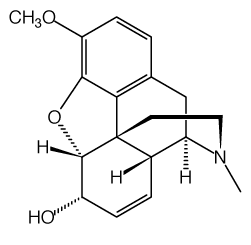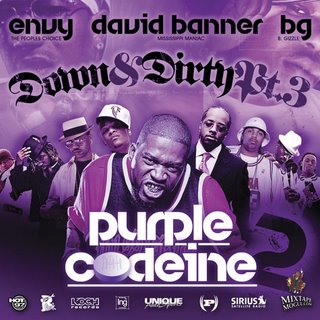By Tim
Pouncey
Kansas in the late 1970's was so different from today; the
Sunflower State might as well have been located in Holland.
Remember what it was like to share drugs with close friends and complete strangers? Remember when casual sex was so casual you didn't even know your partners name? Remember when the political climate of Kansas came down squarely on the side of tolerance? Remember when your personal philosophy of life was defined by rock lyrics and not a mission statement?
You don't?
Well, Steve Otto does.
In his latest semi-fictional novel, Memoirs Of A Drugged-Up, Sex Crazed Yippie (Authorhouse Press/2005), Otto excavates 1970's counterculture like an archeologist loving dusting off a Mastodon tusk. In a brisk 349 pages, Otto gives us a lucid look at a Kansas few people remember --- or can't remember due to a plentiful supply of "controlled substances" that were constantly and cheaply available. Characters romp through Wichita, Lawrence and even Sedalia Missouri when a cheap thrill was worth what you paid for it and pleasure was just the flipside of danger.
But to dismiss this book as just another nostalgic stoner reminiscing about the last days of the counter-culture would be a major mistake. Although there is a certain "back-in-the-day" wistfulness about the time before political correctness was a mantra, Otto tempers his dreamy history lesson with brutal honesty.
The narrator of the story --- a composite of just about every old druggie you ever met --- may graphically describe the bliss of mainlining MDA, he also reminds us that brief moment of pleasure most often occurred in a squalid apartment at broken kitchen table next to sink full of dirty dishes.
Like all good storytellers, Otto takes the reader places they've never been before. Like William Burroughs and Charles Bukowsky, Otto sometimes takes you to places you've never really wanted to visit. Yet, Otto makes it worth the trip by including generous portions of political discourse, Cyrenaic philosophy, post-adolescent lust and near-suicidal thrill seeking to keep the narrative moving along like a junkie careening through a police roadblock.
Otto's work is always provocative and this book will undoubtedly draw the wrath of both solid conservatives and neo-feminists. Otto's characters never mask their contempt for the right-wing agenda and Otto's narrator never hides his obsession with female anatomy. However, criticizing Memoirs because it baits conservatives and objectifies women is missing the point. Filtering 1970's Kansas counterculture through the sensibilities of a naive middle-class, catholic school educated, twenty-something is no easy trick but Otto mostly pulls it off. He has a good ear for times-past and tries --- often successfully --- to make his prose read like it would have been written by someone experiencing these situations 30 years ago. Trying to be simultaneously innovative, entertaining and honest is a juggling act on a unicycle, but Otto is generally at his best when everything's up-in-the-air and he's peddling frantically. When the narrator's budding Marxist politics and his discussions with Iranian nationalists clash with his dawning awareness that Kansas politics has taken a sharp turn to the right, Otto makes it work.
Is Otto's look into the rear-view mirror a true reflection on the 70's, or do the objects simply appear bigger than they were? Ultimately, it doesn't matter. Memoirs resonates with characters buckling under the weight of the America Dream with redemption harder to find than next snort of Cocaine.
Remember what it was like to share drugs with close friends and complete strangers? Remember when casual sex was so casual you didn't even know your partners name? Remember when the political climate of Kansas came down squarely on the side of tolerance? Remember when your personal philosophy of life was defined by rock lyrics and not a mission statement?
You don't?
Well, Steve Otto does.
In his latest semi-fictional novel, Memoirs Of A Drugged-Up, Sex Crazed Yippie (Authorhouse Press/2005), Otto excavates 1970's counterculture like an archeologist loving dusting off a Mastodon tusk. In a brisk 349 pages, Otto gives us a lucid look at a Kansas few people remember --- or can't remember due to a plentiful supply of "controlled substances" that were constantly and cheaply available. Characters romp through Wichita, Lawrence and even Sedalia Missouri when a cheap thrill was worth what you paid for it and pleasure was just the flipside of danger.
But to dismiss this book as just another nostalgic stoner reminiscing about the last days of the counter-culture would be a major mistake. Although there is a certain "back-in-the-day" wistfulness about the time before political correctness was a mantra, Otto tempers his dreamy history lesson with brutal honesty.
The narrator of the story --- a composite of just about every old druggie you ever met --- may graphically describe the bliss of mainlining MDA, he also reminds us that brief moment of pleasure most often occurred in a squalid apartment at broken kitchen table next to sink full of dirty dishes.
Like all good storytellers, Otto takes the reader places they've never been before. Like William Burroughs and Charles Bukowsky, Otto sometimes takes you to places you've never really wanted to visit. Yet, Otto makes it worth the trip by including generous portions of political discourse, Cyrenaic philosophy, post-adolescent lust and near-suicidal thrill seeking to keep the narrative moving along like a junkie careening through a police roadblock.
Otto's work is always provocative and this book will undoubtedly draw the wrath of both solid conservatives and neo-feminists. Otto's characters never mask their contempt for the right-wing agenda and Otto's narrator never hides his obsession with female anatomy. However, criticizing Memoirs because it baits conservatives and objectifies women is missing the point. Filtering 1970's Kansas counterculture through the sensibilities of a naive middle-class, catholic school educated, twenty-something is no easy trick but Otto mostly pulls it off. He has a good ear for times-past and tries --- often successfully --- to make his prose read like it would have been written by someone experiencing these situations 30 years ago. Trying to be simultaneously innovative, entertaining and honest is a juggling act on a unicycle, but Otto is generally at his best when everything's up-in-the-air and he's peddling frantically. When the narrator's budding Marxist politics and his discussions with Iranian nationalists clash with his dawning awareness that Kansas politics has taken a sharp turn to the right, Otto makes it work.
Is Otto's look into the rear-view mirror a true reflection on the 70's, or do the objects simply appear bigger than they were? Ultimately, it doesn't matter. Memoirs resonates with characters buckling under the weight of the America Dream with redemption harder to find than next snort of Cocaine.

.jpg)






